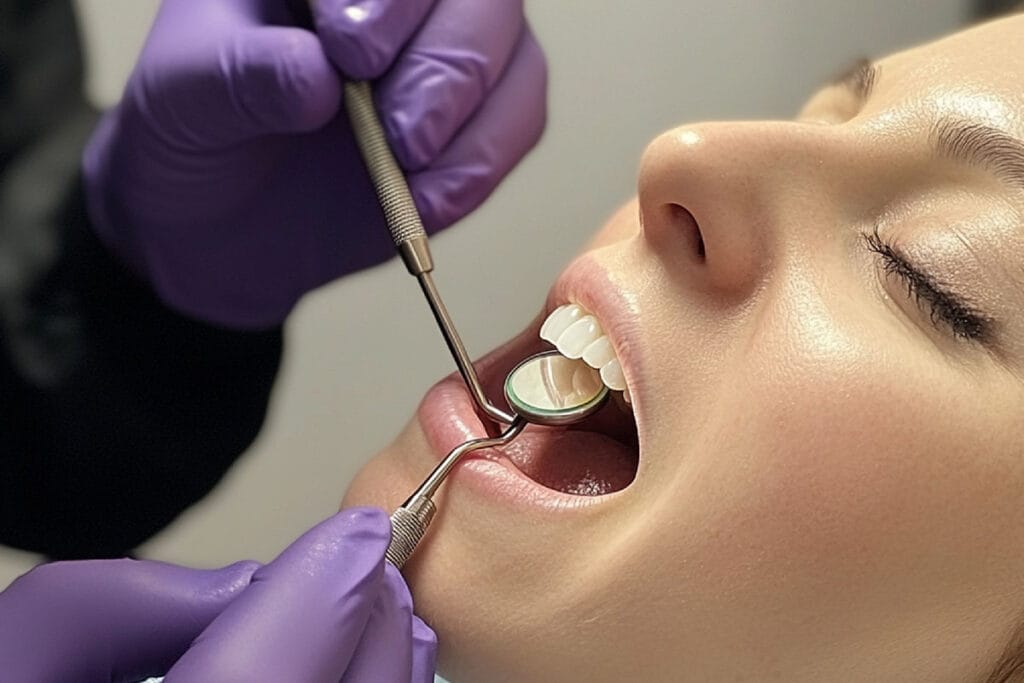Pain always tells you to pay attention to your body. When pain is mild and tolerable, people go for a wait-and-see approach, but it’s not a good idea when you have a Toothache.
Tooth pain gets worse rapidly in most cases, so waiting after a toothache may turn into a dental emergency. A tooth problem is not the same as a simple injury or muscle strain that might heal naturally. It is impossible to eliminate tooth decay or repair damaged enamel, so a toothache can’t heal without dental care.
Ignoring toothaches can lead to serious problems, so it’s important to know when you need to visit a dental clinic for the same.
When to See a Dentist About Tooth Pain
There are many different types of toothaches. Depending on their root cause, they may require dental attention immediately to relieve pain. Often, seeing a dentist is the best way to cure a bad toothache.
There are many reasons why toothaches happen:
- Damaged teeth: if you have cracked, chipped, or broken tooth
- Tooth decay: you may have a cavity that has spread enough to cause pain
- Gum disease: this causes your gums to become red and swollen, which can be very painful and cause toothaches
- Malocclusion: this is when your bite is uneven, which causes toothaches
- Impacted Teeth: Wisdom teeth or other teeth not coming out properly can cause pain and may need extraction (removal of the tooth).
- Bruxism: Grinding or clenching your teeth can lead to severe jaw pain and toothaches.
Some toothaches are caused by issues that are non-dental related:
- Muscle pain
- Cluster headaches
- Vitamin deficiency
- Sinus infections
Without knowing the underlying reason, you’re left to guess about how serious it is and whether it will be relieved on its own or you should call a dentist.
That’s why our team here at Ohm Dental in Piscataway, has put together this guide to help you to find out what’s behind your tooth pain and when you need to come see us.
When Should You See a Dentist?
Here are some signs that you shouldn’t ignore:
Persistent Pain:
If your toothache lasts more than two days or keeps coming back. Ignoring a long-lasting toothache can lead to worse pain, swelling, or even tooth loss. If the pain lasts beyond two days, don’t wait, call your dentist. A simple checkup can help prevent a bigger problem later. Even if the pain seems to improve, the issue may still exist beneath the surface.Sudden Tooth Pain:
Tooth pain that comes on suddenly and severely is a major red flag. If you experience sharp, intense pain, it could indicate an infection or abscess. This kind of pain is not normal and should not be ignored. Your dentist may prescribe antibiotics, drain the infection, or perform a root canal to save the tooth. The longer you wait, the worse the infection can get.Swelling:
Swelling around the tooth or gums can lead to an infection, which requires immediate visit to a dentist. It can make it difficult to chew, speak, or even move your jaw properly. In some cases, it may cause difficulty breathing or swallowing, which is a medical emergency. Applying a cold compress may help with temporary relief, but it won’t fix the underlying problem.Fever:
If you experience a fever along with your toothache, it may be a sign of a severe infection that needs instant treatment. Fever is a sign that your body is fighting an infection. If your toothache is linked to a fever, it could mean the infection has spread beyond your tooth. Earaches can also be connected to dental issues, especially if the pain radiates from your jaw or molars.
Difficulty Chewing:
When a toothache makes it challenging to chew or bite, it’s time to see a dentist. This kind of pain could indicate a cracked tooth, a deep cavity, or gum disease. Cavities that reach deep into the tooth can also cause pain when chewing. If decay reaches the inner nerves, it can trigger sharp, shooting pain when pressure is applied. Without treatment, the cavity can worsen and lead to a painful infection.
Pain with Pressure:
If your tooth only hurts when you apply pressure, this could signal an abscess or other serious problem requiring dental attention.
Understanding the causes and treatments of toothaches is important to manage and prevent oral health issues. By adding daily oral hygiene practices, such as brushing, flossing, and maintaining a healthy diet, along with regular dental checkups, you can reduce your risk of experiencing toothaches. Toothaches are never fun, but knowing when to see a dentist can save you from unnecessary pain and complications. Ignoring a toothache can lead to infections, tooth loss, or even serious health risks. So don’t hesitate to reach out. Taking care of dental problems early can save you time, money, and discomfort in the long run. Stay proactive and keep your smile in top shape!
Are you experiencing toothache or concerned about oral health? Contact OHM Dental to schedule an appointment for a healthier, pain-free smile.




